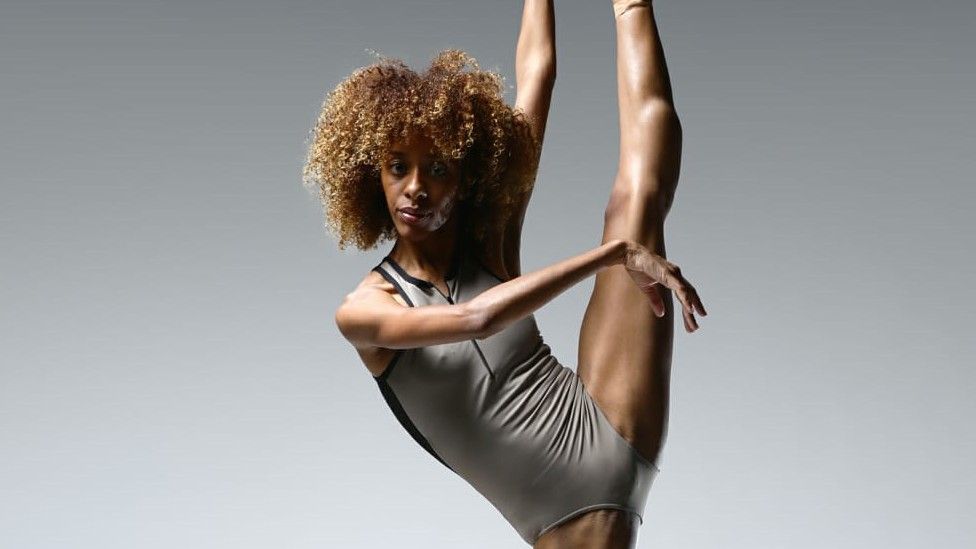Black ballet dancers 'proud' of Chloé Lopes Gomes after racism claims
- Published

Black and mixed heritage ballet dancers have shown support for Chloé Lopes Gomes, after she shared her experiences of racism within the industry.
The French performer is the first black female dancer at Berlin's principal ballet company Staatsballett.
In a Guardian article, she accused the institution of racial harassment, claiming she was told she did not fit in because of her skin colour.
The company responded by saying her allegation "deeply moves us".
An internal investigation into discrimination and racism in the company is now under way, a statement has confirmed.
Marcelino Sambe, the second black male to be a principal dancer with The Royal Ballet, posted on Instagram that he was "moved" to read about "horrible experiences" she has suffered in "this often anachronistic world or ballet".
"I'm so proud of you for sharing your story" wrote Sambe. "It takes strength to tell the truth."
"I hope that by you sharing your experiences, future dancers won't have to go through the same."
Royal Ballet soloist Fernando Montaño, meanwhile, suggested Lopes Gomes was not alone in suffering such discrimination.
"Ballet is beautiful and a very hard art form for everyone that does it," Montaño said.
"But unfortunately for some people it's always a little more difficult, just because of their skin colour, physical appearance or personalities."
'Blend in'
Lopes Gomes, 29. joined Staatsballett in 2018, and said in the article that she had faced repeated racial abuse from her ballet mistress, noting how several managers failed to act after it was brought to their attention.
She added that her dance teacher forced her to wear white make-up to "blend in" with other dancers in a production of Swan Lake, and had also refused to give her a white veil for another show.
Cira Robinson and Marie Astrid Mence with their new pointe shoes
Reacting to the claims, Staatsballett's interim artistic director, Christiane Theobald, said in a statement: "Structural racism is a societal issue, and as a state institution this affects us as well.
"The racist and discriminatory behaviour that was brought to light in our company deeply moves us and shows that the necessary skills and tools to deal with issues of discrimination need to be worked on thoroughly to instigate profound changes.
"The necessary skills and tools to deal with issues of discrimination need to be worked on thoroughly."
Allow Instagram content?
This article contains content provided by Instagram. We ask for your permission before anything is loaded, as they may be using cookies and other technologies. You may want to read Meta’s Instagram cookie policy, external and privacy policy, external before accepting. To view this content choose ‘accept and continue’.
'Equality and respect'
Leipzig ballet soloist Luke Fierce revealed they had experienced similar racism, and stressed that non-white ballet dancers should be treated with equal "respect" and "dignity".
"I feel so much pain with this and so much to relate to," they said, about Lopes Gomes' article.
"It's so difficult to be black and to work in ballet.
"Comments made about skin colour in relation to certain ballets and costumes are so easily dismissed but are steeped in racism."
WATCH: The black ballet pioneers
Nazirah Taylor noted how dancers' careers often depend upon the preferences of the all-powerful ballet masters.
"Their power is undeniable," she posted online. "It is very easy for them to abuse dancers without impunity.
"Ballet institutions must embody values of tolerance, acceptance, equality and respect. It is their responsibility to protect their dancers."
Follow us on Facebook or on Twitter @BBCNewsEnts. If you have a story suggestion email entertainment.news@bbc.co.uk.
- Published26 January 2020
- Published11 September 2019
- Published3 November 2018